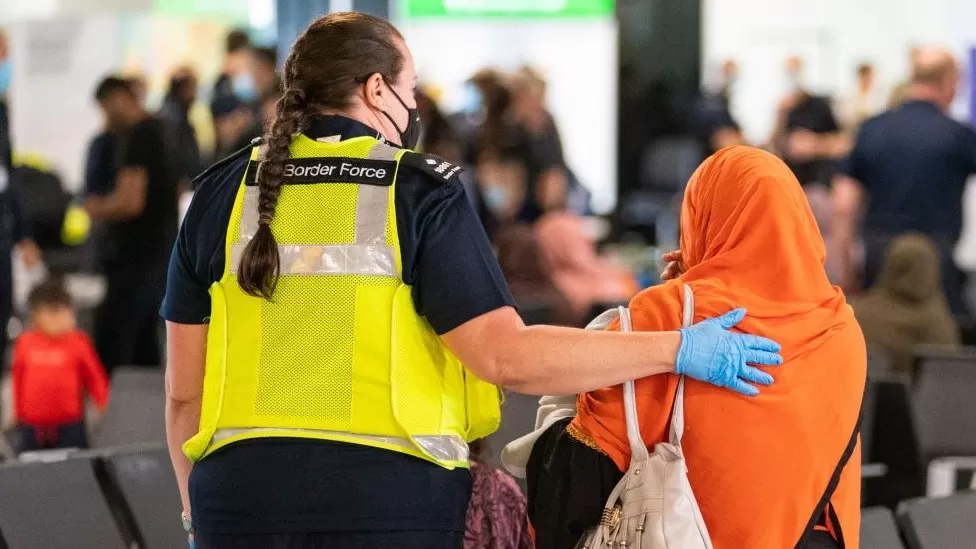Migrant crisis: Afghanistan refugees being let down by UK

It has been reported that the UK has “let down” many Afghan refugees, with some living in hotels for over two years, and now facing eviction.
In order to better support future refugees, More in Common said lessons need to be learned.
It coincides with the 15 August 2021 anniversary of the UK’s evacuation program and the Taliban’s takeover of Kabul.
According to Johnny Mercer, there have been “challenges” in the Afghan schemes, but he is determined to see them through.
As part of Operation Pitting, the UK airlifted around 15,000 people out of Kabul, including British nationals and people who worked with the UK in Afghanistan.
Those without a place to live were placed in government-funded hotels. By the end of March, there were still about 8,800 Afghans living in hotels, which was supposed to be temporary accommodation.
In a bid to move Afghans out of hotels, the government has set a deadline of the end of August, but councils have warned that some are facing homelessness.
132 Afghans in the UK were surveyed by More In Common, an organization founded after Labour MP Jo Cox was murdered.
Housing applications were repeatedly rejected, and unsuitable homes were offered, sometimes hundreds of miles away, due to failures in communication between local authorities and the Home Office.
In one example, refugees living in temporary accommodation in Bristol, where they had family, were offered permanent housing in Northern Ireland.
Since the UK evacuated Amir Hussain Ibrahimi from Afghanistan two years ago, he has been living in a hotel in Southend-on-Sea, Essex.
As a journalist and photographer in Afghanistan, the 24-year-old was forced to leave his family behind after being arrested and attacked by the Taliban.
In the first few days in the hotel, the government told us we would stay three months, four months or five months,” he told
“It’s quite hard because you don’t know what to do next.”
“Sometimes you want a place to feel like your home,” he said, adding that he had experienced depression since coming to the UK.
The council finally found Mr Ibrahimi a permanent home after he had been rejected by over 10 landlords. Currently, he is awaiting the landlord’s acceptance of his application.
He said he knew many other families that had not been able to find a home.
In addition, other Afghans did not have experience working in the UK and often had large families, Mr Ibrahimi acknowledged. The government, however, should do more to help, he said.
In the past week, 440 Afghans had been matched with homes, and “I couldn’t have generated that momentum without a hard deadline”.
